We have been working with Education Scotland, Digiscot to develop materials to support the teaching of technologies outcomes. This session is part of the series and focuses on the use of Practical Tools, from modelling to woodwork.

We have been working with Education Scotland, Digiscot to develop materials to support the teaching of technologies outcomes. This session is part of the series and focuses on the use of Practical Tools, from modelling to woodwork.
We have been working with Education Scotland, Digiscot to develop materials to support the teaching of technologies outcomes. This session is part of the series and focuses on the use of Computer Aided Design (CAD) especially TimkerCAD.
With Scotland hosting the COP26 Climate conference, held in Glasgow this year there is a renewed momentum behind Learning for Sustainability (LfS) as part of our CfE curriculum.
With this in mind we have been working hard to support our practitioners with this. Below is a summary of the offers we have for practitioners to engage in.
For all updates on LfS in Falkirk please see the LfS blog.
We have put together several videos on our blog to outline possible projects or resources you could engage with to cover LfS and STEM. These are linked to the 5 Falkirk LfS bundles. Exploring Sustainable Practices, Global Citizenship, Culture and Heritage, Exploring Values and Attitudes and Exercising Postive Activism. We are hosting live Q and A sessions for these over the coming weeks. Sign up on CPD manager using the links below.
Exploring Sustainable Practices: Session 1, 7th September, 4-5pm via teams, sign up here.
Featuring: Jacobs Engineering, Easter Bush Science Outreach Centre, Royal Society of Chemistry, Zero Waste Scotland and RHET
Global Citizenship: Session 2, 9th September, 4-5pm via teams, sign up here.
Featuring: Little Lighthouse-Laura Robinson Larbert Village Primary School, Lego League- Sarah Myles St Margarets Primary School, John Muir Award-Liam Mason and William Quirke Falkirk High School, RSPB Wild Challenge.
Connecting with Culture and Heritage: Session 3, 14th September, 4-5pm via teams, sign up here.
Featuring: The Engine Shed, Seagull Trust, Great Place Falkirk.
Exploring Values and Attitudes Session 4, 15th September, 4-5pm via teams, sign up here.
Featuring: Fiona Shaw Ed Scot IGBE, Jayne Quoiani Easter Bush Science Outreach Centre.
Exercising Positive Activism Session 5, 21st September, 4-5pm via teams, sign up here.
Featuring: Eco Schools-Bantaskin Primary, Enterprise Scotland, Young STEM Leader
If you would like any further information on any of these opportunities please just get in touch. gw14hanningbarbara@glow.sch.uk
We have worked with Skills Development Scotland (SDS) to create a suite of Careers Education Training and resources to support Primary and Secondary practitioners. This training consists of 4 modules:
This session sets out what the Career Education Standard is, its origins and what this means for us as practitioners.
Career Management Skills (CMS)
This session sets out the mandate for teaching Career Management Skills as part of the curriculum. Gives examples of classroom practice to support teaching CMS and provides resources for this.
Labour Market Information (LMI)
This session explains what Labour Market Information is and why it can be useful for teaching career education. Examples of how to use this information in classroom practice and resources to support this are provided.
This session explores what we mean by skills and why they form an important part of careers education. Two case studies on Primary and one Secondary are then highlighted as examples of good practice.
Here is our Computational Thinking CLPL. This came back in our practitioner surveys as an area which required support and training. We can understand why as it sounds like a really complex and difficult concept. In the creation of this CLPL we have found some great examples of practice and some excellent support resources. Hopefully you will agree. If you click on the links below you should be taken to each of the presentations for this CLPL. This will work better on a laptop than a phone or tablet.
Computational Thinking Early Level
Hi All
Here comes our engineering CLPL. This session has been created using Microsoft Sway instead of our usual medium of video. The session is split into 3 sections: Whats is Engineering?; Engineering Skills; Resources for Teaching Engineering. The aim of these sessions is to demonstrate where engineering already appears in your lessons right across the curriculum. Also to highlight where engineering skills are being created in the curriculum. This is in a bid not to add to workload but instead offer opportunities to capitalise on opportunities to mention and recognise engineering as part of what is already going on.
First off what is engineering and what does it look like in our curriculum? If you click on the full screen option (four arrows pointing outwards) then you can navigate through the sway. You can click on images to enlarge them.
The next sway is on recognising engineering skills in our curriculum. As you will see you will already be teaching these skills. Perhaps as the lesson practitioner being able to relate the skills to engineering might help pupils to relate to what engineering might look like as a career and that it could be something they would be good at.
The final presentation contains links to resources to support the teaching of engineering and engineering skills. This will remain as a live document and we will continue to update it with new opportunities as we find them.
We hope you have found these presentations helpful. If you need any further support with these topics please get in contact.
This week when creating an early level resource on people who help us in the medical field I put some clip art in. I searched for doctor and chose one of the first images. Then the same for nurse.
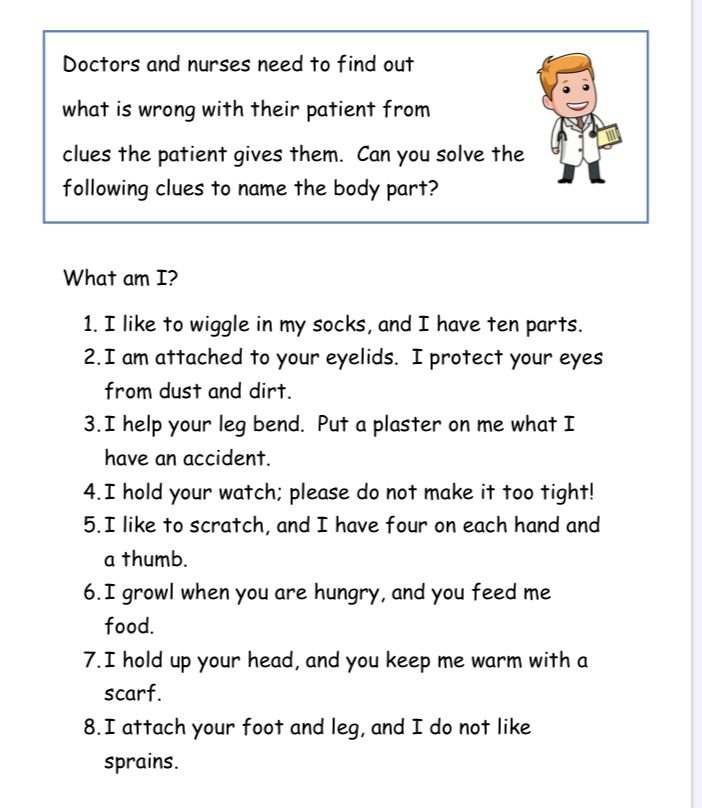
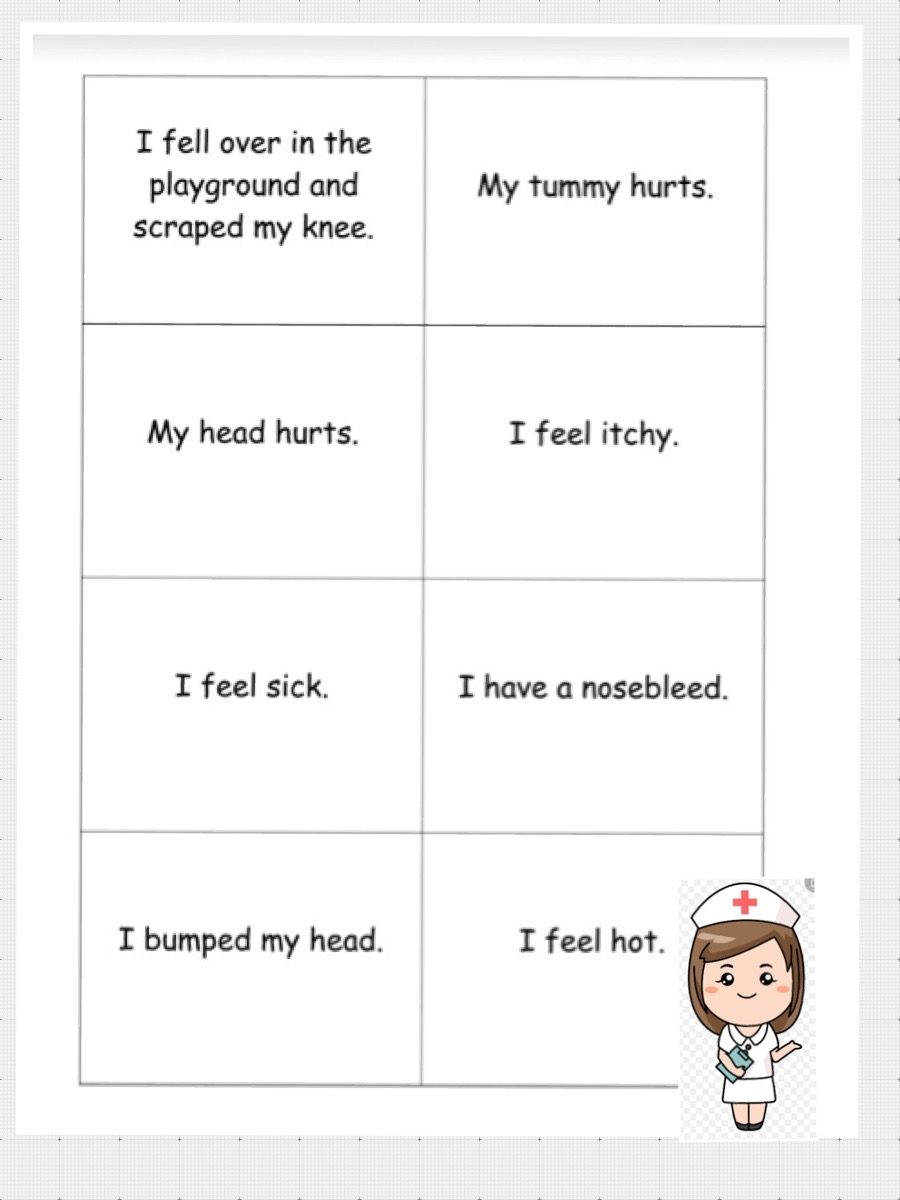
‘So what?’ you say. All I did was pick the first images returned in a search. But when I looked at the search results mostly they return a stereotype.
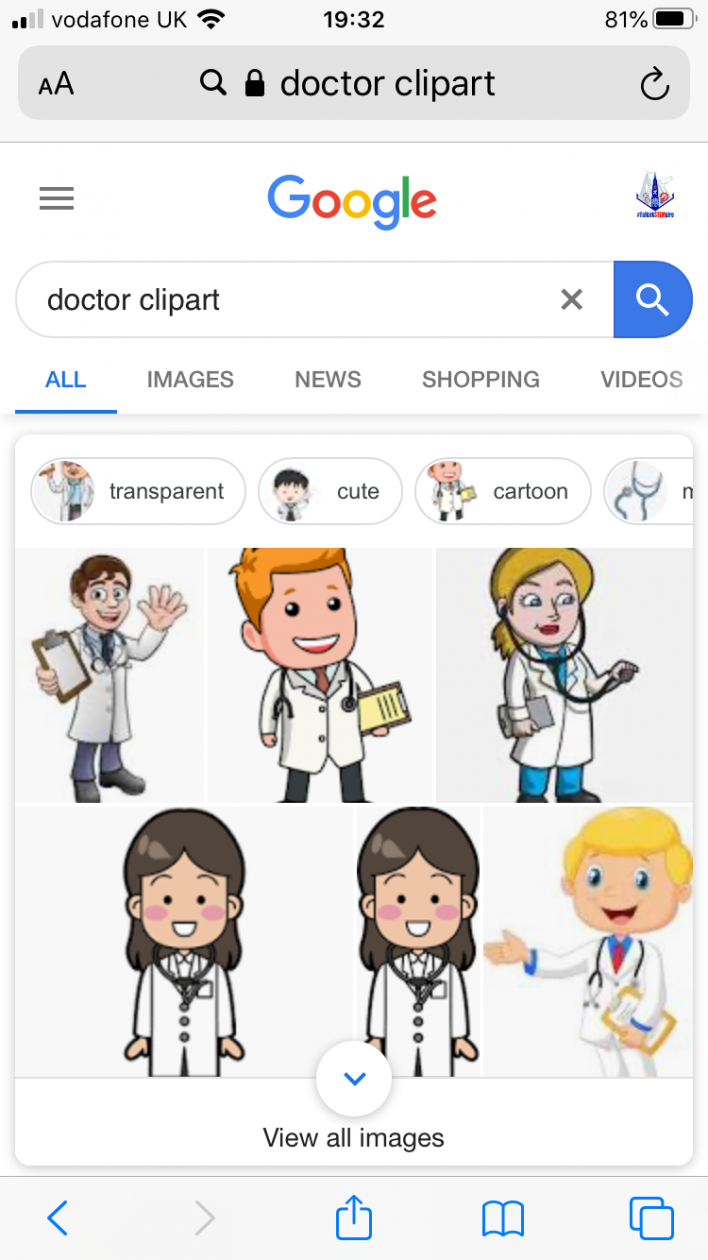
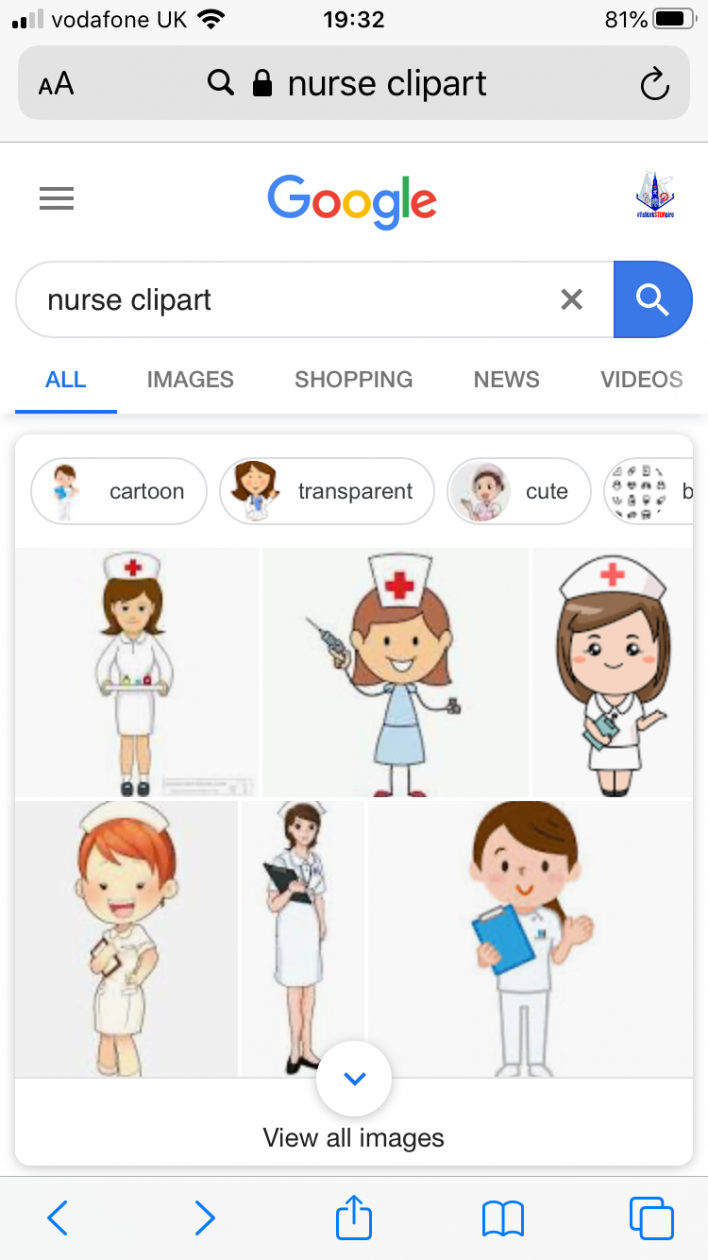
On reflection I started thinking, as I am potentially influencing pupils ideas of what a doctor or nurse is. Perhaps even influencing what pupils feel they can or cannot aspire to. Should I have thought more carefully about the images I chose?
To help us think about the influence we may be having on pupils and therefore who thinks STEM is right for them, this weeks CLPL is from the Improving Gender Balance and Equalities (IGBE) team at Education Scotland. Fiona Shaw is the IGBE officer who covers Falkirk and her contact details are in the presentation.
Hi All
This week’s CLPL is on the STEM Self Evaluation and Improvement Framework. This framework has been provided by Education Scotland to support schools with developing their STEM practice by evaluating their current work and giving focus for next steps. We are very aware that we are in an ever changing and somewhat uncertain times. The last thing we want to do is to create more work for practitioners or place importance on tasks which may not seem pressing. The current situation is far from ideal and has pushed us down paths in providing education we may not have chosen. However it is apparent that some excellent work is being done and as enthusiasts for STEM, multiple opportunities to engage our pupils and colleagues in STEM have presented themselves.
Family learning has been the status quo for most pupils for the last 3 months and this may continue to be the case for some in part at least. Are we making the most of this family learning to engage parents in STEM? Are we providing equity for our families with the provisions we are making? If so can we continue to build on this?
Outdoor learning lends itself so well to covering STEM Es and Os, as outdoor learning seems to be being encouraged as we return to school can we capitalise on this to support STEM work in our school? Could we lead the outdoor learning through STEM?
We have been engaging with technology in ways we probably never imagined. Pupils and practitioners alike are up skilled, can we continue to build on this? Are we going to change the way we teach?
Pupils are working in a very different way at home with different timescales, is this increasing their higher order thinking and creativity? How do we continue to support this in school? Could this be through STEM?
The framework allows us to evaluated these exact topics. Perhaps as this is where we are for now and these are the opportunities we have been afforded we could work to take advantage of this and find ourselves in a better place at the other side?
To help you engage with the framework and provide examples of good practice we have asked Gayle Duffus, National Education Officer for Primary Science and the RAiSE program to provide this CLPL. Some of you may know Gayle from our Friday Q and A sessions. Below you will find Gayle’s video for this. The associated resources are in the teams drive in the CLPL folder.
This weeks CLPL is on electricity.
I teach this as part of the engineering science curriculum using a mixture of software and breadboards.
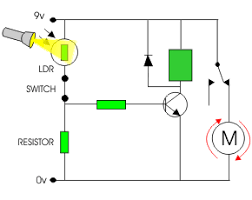
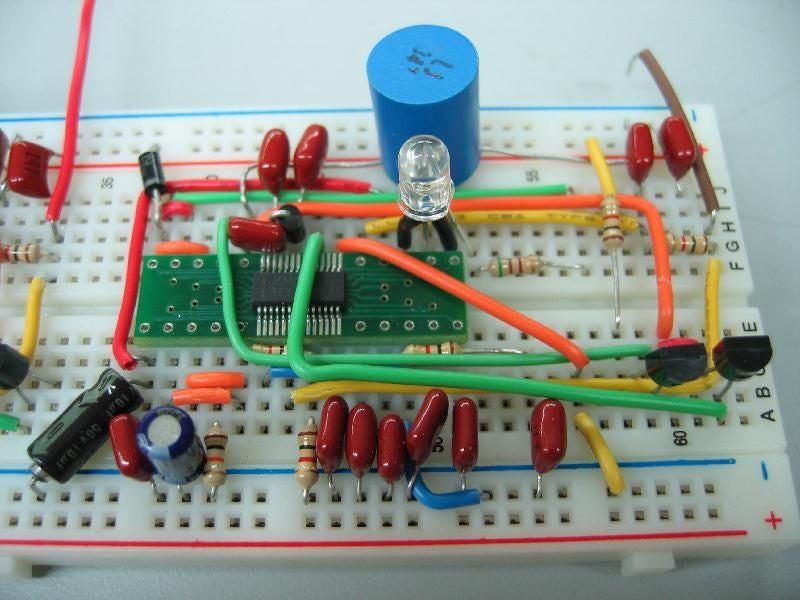
It is a topic which I enjoy but always with an element of trepidation, will the kit work (blown bulbs, loose wires etc.), are the multimeters on the correct setting, will there be lost components? Pupils amaze me every time finding a creative way for things to go wrong. Last week however I started using the playdough circuits and I have never had so much fun!
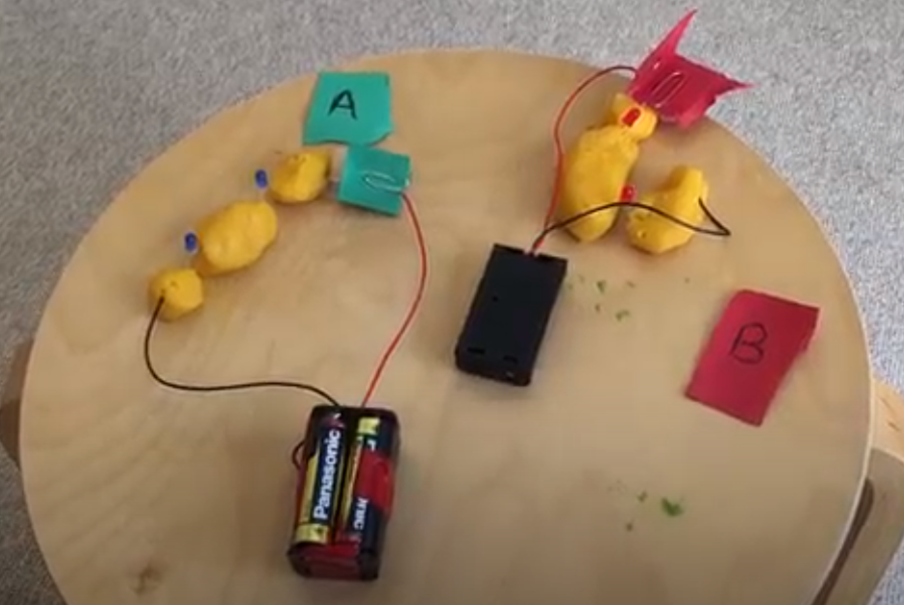
There is so little to go wrong and the components are so cheap that if it breaks I could just use a different one. The circuits are very flexible having their own glue so mounting circuits onto a project is easy. There are no long wires to move about or cram into a small space. This low tech option could be good for returning to school and providing small amounts of kit for experiments. Have a look at the first level video and see what you think.
To highlight the good practice already going on in Falkirk W/C 11th May Mrs Jones from Carmuirs Primary School produced an excellent week long task on electricity for her P6 pupils using Wakelet. This could be a useful approach for STEM during blended learning. Check it out here.
Good morning! Here is the link to this week's learning tasks: https://t.co/uyI6sEQnBp 💡⚡️Remember to check in via Teams or Glow this week.😃 #STEMathome #ourmissionmonday #joininfalkirk #homelearning #keepingcarmuirsconnected
— Carmuirs P3/2 (@Carmuirsp3_2) May 11, 2020
The resources for all three levels for this topic are in the teams files as usual in the CLPL folder. If you are a member of the team click here for resources. This week we’ve included possible novel studies which the topic of electricity could be covered as part of.
To join our STEM – RAiSE Falkirk Team type the code is188td

We also really appreciate your feedback, if you could complete the microsoft form below we would be very grateful.
Hello,
This CLPL is on Tools in School. Below is the video for the course and links to access resources.
The idea is to set out what would be required to start using tools in school and demonstrate how easy it could be to achieve some simple projects. The projects all contain the vital life skill of attaching things with screws.
1/2 These boys concentrated very hard on their #wonderfulwoodwork today. They demonstrated fabulous skills and equally created a wonderful masterpiece to express their imagination @FalkirkFroebel #creativity #STEM #naturalnumeracy pic.twitter.com/R1YLHGs21F
— Bowhouse Early Learning and Childcare (@BowhouseBairns) February 23, 2021
You may have seen the pupil from Carronshore Primary School tweeting his success making a planter from the @littlelessons20 twitter tutorial
Look at the amazing planter this P6W pupil made with the help of @littlelessons20. Brilliant! So many different skills and types of learning going on here. #homelearning #beethebestyoucanbee @carronshoreps pic.twitter.com/VRghCtffFZ
— ℙ𝟞 😀 (@Cpsmrsw) May 4, 2020
or the pupils from Victoria Primary School screw fixing objects to a fence to make a busy board.
@MrsEdwards_VPS @MrMcLeodVPS these busy boys made busy board no 2 for the wee ones it has lots of lights and switches, they particularly liked the retractable seat belt clip. They got lots of insight from dad on tools and what is best to use for particular jobs in the house. pic.twitter.com/kO6wzqGvWP
— Wendy Smith (@WendySm54126618) May 2, 2020
Perfect examples of what can be achieved with these skills and how these learners are being inspired to have an interest in STEM.
To participate in this CLPL, watch the video, have a look at the twitter links above and have a look at the ‘tools in school’ resources here.


As part of the PSDO network across Scotland we have produced these tool guides. These have been approved by SSERC. The guides give you basic teaching points for each tool, images for tool use instructions and H and S to use with pupils and QR codes which lead to videos of using these tools. These guides can be used to provide basic training or checklists for practitioners or could be used with pupils in class. When we return to school and it is possible I would be more than willing to run staff training on tools so please get in touch about this. gw14hanningbarbara@glow.sch.uk



Falkirk Early Years team have also been providing tools training for their practitioners. They provide info on how to get started and where to buy tools. They have also been working with Pete Moorhouse and he has provided some free resources for Falkirk too. This can all be found on the EY Frobel blog here.
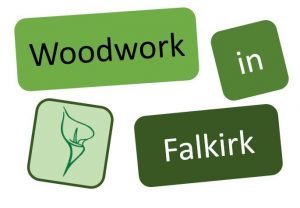
We would appreciate your feedback on this CLPL. Please complete the microsoft form here: